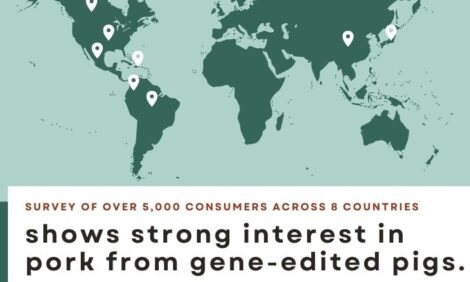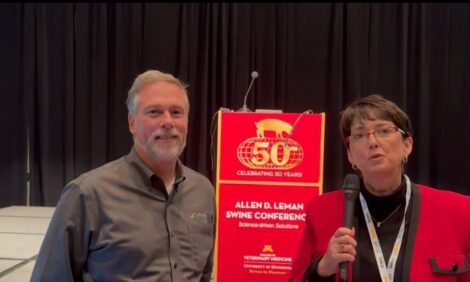



Pirbright to create next-generation vaccines and diagnostics to prevent livestock reproductive diseases of worldwide impact
Pirbright will lead on PRRS activityThe Pirbright Institute, together with 15 other partners across seven European countries (Italy, United Kingdom, Spain, France, Netherlands, Germany and, Switzerland) has recently secured funding from the UKRI Horizon Europe Guarantee Scheme to develop innovative vaccines and diagnostics for livestock reproductive diseases.
The funding will focus on four of the most economically important infectious diseases affecting pigs, sheep and goats. In particular, REPRODIVAC activities will be focused on:
- ovine enzootic abortion (OEA), one of the most common infectious causes of abortion in small ruminants worldwide, caused by Chlamydia abortus
- Q fever, an important and highly contagious zoonotic disease of worldwide impact, caused by Coxiella burnetii
- swine brucellosis, a neglected disease with high zoonotic impact in the Americas and Asia, with the potential to re-emerge in Europe, caused by Brucella suis
- porcine reproductive and respiratory syndrome (PRRS), responsible for major economic losses in the pig industry worldwide, caused by PRRS viruses (PRRSV)
REPRODIVAC will strengthen European capacity and competence by establishing a comprehensive network of preeminent European scientists, international organisations, and industry partners to advance research and promote technological developments.

Pirbright will lead on PRRS activity to develop new vaccines and enhance current diagnostic tests for PRRS. Within the pig industry, annual losses to PRRSV in the USA and Europe alone are estimated to exceed $600 million and €1.5 billion, respectively. Pirbright and REPRODIVAC partners will apply ‘structural vaccinology’ to the development of a broadly protective PRRSV vaccine. Naturally occurring porcine antibodies capable of broadly neutralising PRRSV will be isolated and used to define highly conserved sites on PRRSV glycoproteins.
Mimics of these structures will be engineered to be displayed by viral vectors and their ability to induce protective antibody responses demonstrated. Recombinant PRRSV glycoproteins will be used to establish a serological ELISA that reliably correlates with neutralising antibody titres to better aid the monitoring of the immune status of pigs in the field.
The success of the project critically depends on the expertise, knowledge and collaboration of EU project partners who experience similar livestock infections as those seen in the UK.
While there is currently a delay in the UK’s association to EU research funding programmes including Horizon Europe, it is important and timely that the UKRI Horizon Europe Guarantee Scheme has allowed this ambitious and innovative project to go ahead.
Prof Simon Graham, head of the PRRS Immunology Group at Pirbright said: “I am excited to start this project, which is enabling us to pursue an ambitious approach to the development of a broadly protective PRRS vaccine. There will undoubtably be challenges ahead, but if we can succeed, this vaccine could have a major impact by helping to improve PRRSV control”.






